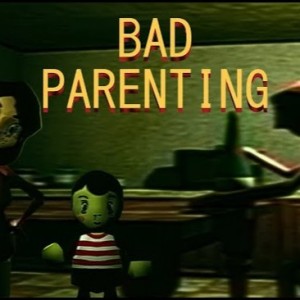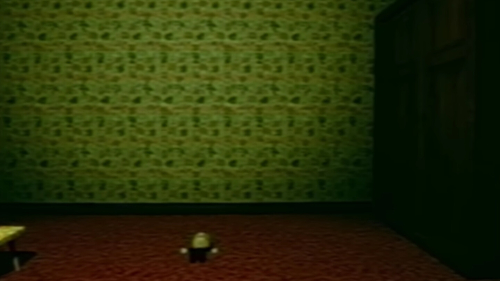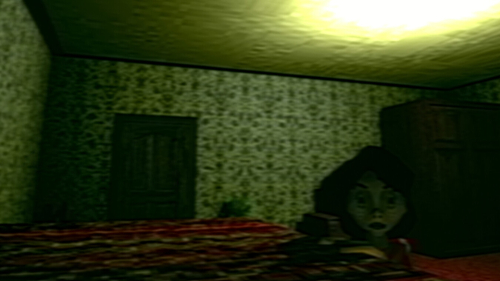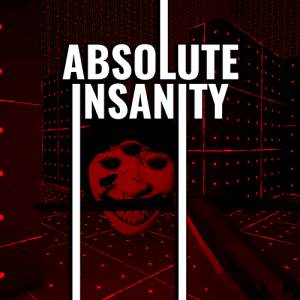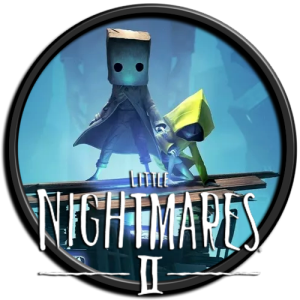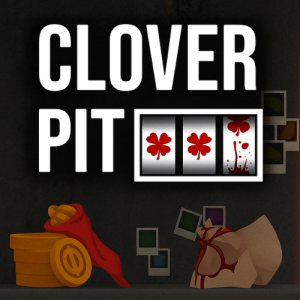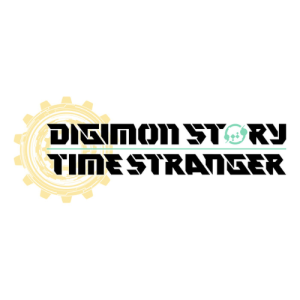I vividly remember the day I launched Bad Parenting, not knowing that I was about to experience one of the most unconventional games in recent memory. Right from the start, I was drawn into a world that dared to invert the familiar, playful simulation of home life by presenting everyday responsibilities through an absurd, satirical lens. As I navigated through the bizarre narrative and unexpected challenges, I discovered that the game provided a twist on conventional simulation titles. I found myself laughing, cringing, and constantly questioning the actions I was taking, which added an edgy layer of humor to the experience. The world of Bad Parenting thrived in its darkly whimsical take on an everyday role, forcing me to confront the inherent chaos in family life with an ironic perspective.
Embracing the Unconventional Premise
From the very beginning, the game introduced me to a concept that was equal parts surreal and thought-provoking. It did not shy away from showcasing the inherent conflict between expectations and reality in the realm of family dynamics. Every decision I made was wrapped in complexity, injecting layers of meaning into what might otherwise be seen as trivial everyday interactions. As a player, I was challenged to navigate this moral minefield where every action bore weight. The absurd setup allowed me to explore a simulated environment where societal norms were subverted in a playful manner. Even though I knew I was controlling a character in a game, the experience resonated with me in unexpected ways, largely due to the thoughtfulness behind the unconventional narrative choices.
Navigating Through Chaos and Order
The balance between chaos and order is one of the standout elements in Bad Parenting. I soon realized that every action contributed to a cascade of consequences, often in a humorous yet unnerving chain reaction. Following a series of tasks, I had to manage the contrasting demands of maintaining household discipline while indulging in chaotic escapades, which eventually resulted in a labyrinth of unpredictable outcomes. This game demanded that I constantly be aware of the pitfalls and pleasures of my decisions, turning what might have been a light-hearted simulation into an experience fraught with both comedic misadventures and serious self-reflection. Although the mechanics were remarkably complex, the challenge lay in making choices that were never easily classified as purely right or wrong.
Interactive Storytelling Through Unconventional Mechanics
The core gameplay of Bad Parenting felt like a delicate dance between interactive storytelling and sandbox simulation. Immersed in a setting that was as much about miscommunication as it was about order, I was repeatedly confronted by gameplay mechanics that forced me to rethink my approach to every decision. The narrative was structured around pivotal moments, each crafted to highlight the absurdities and contradictions of everyday life when played out in extraordinary ways. The intricate balance between strategy and spontaneity meant that while there was room for planning, chance events could quickly change the course of my virtual existence. I appreciated the raw unpredictability which, instead of leaving me frustrated, spurred a constant revaluation of my strategies.
Experiencing a Distinct Visual World
The visual design of the game immediately grabbed my attention. The art style, deliberately crafted with bold color choices and exaggerated character designs, helped set the tone for the disarray that resonated throughout gameplay. I felt that the designers had a precise vision in mind: to portray the precarious nature of everyday life in a manner that was strikingly vibrant. The intentional exaggeration in every frame served to underscore the overwhelming sense of irony embedded in the storyline. Each scene was meticulously painted with a playful yet judicious blend of humor and subtle commentary, making each moment felt like something out of a satiresque painting. As I watched my character struggle, succeed, and sometimes flounder in this meticulously crafted realm, I was constantly reminded that every visual cue was laden with meaning, no matter how light-hearted it appeared at first glance.
The Soundtrack That Echoes Life's Tensions
One of the most compelling elements of my experience was the game’s soundtrack, which managed to encapsulate the dual nature of the narrative through its audio choices. The sound design was subtle yet impactful; ambient tracks blended seamlessly with unexpected bursts of musical intensity during moments of high tension. As I maneuvered my way through the intricacies of the game, the oscillation between soft, introspective tunes and dynamic, sometimes jarring audio cues provided a sonic representation of the delicate balancing act that underpinned the story. This impeccable auditory detail not only enhanced the mood but also worked to highlight the internal conflicts faced by the characters. In moments when the gameplay reached a fever pitch, the music served as an unmistakable reminder of the constant struggle between order and entropy present in every facet of the game’s fabric.
Unveiling Layers Through Dark Humor
The humor embedded in Bad Parenting was one of its most distinctive aspects. Playfully dark and persistently ironic, the game frequently made me laugh with its ingenious take on the trials and tribulations of nurturing life. I found that it did not rely on crude antics or cheap gags; instead, it offered a mature form of humor that emerged naturally from the absurdity of its premise. The game’s dialogue, narrative choices, and even the challenging missions were interspersed with wry observations about everyday human behavior. Throughout my journey, it became clear that the humor was not only a narrative device but also a tool to reflect on societal expectations. The tongue-in-cheek commentary surrounding parental duties challenged my preconceptions and often left me pondering over the less discussed aspects of personal responsibility in a world that is both chaotic and determinedly organized.
Crafting a Complex Web of Responsibilities
One of the driving forces that kept me engaged was the intricate system of tasks and responsibilities woven into the gameplay. As a player, I was immediately thrust into a realm where each decision held significant consequences for the simulated household. I relished the challenge of juggling daily chores with unexpected crises, finding myself constantly strategizing to maintain an equilibrium. Navigating this dense network of obligations tested my foresight at every step. Rather than simplifying the experience into a series of discrete, pre-defined tasks, the game allowed for organic interactions that felt highly realistic in their complexity. Every action contributed to an accumulated sense of burden or relief, presenting me with a reflective mirror of the constant negotiation between our routines and the unforeseen obstacles that life can present.
The Delicate Balance of Resource Management
Bad Parenting’s unique approach to resource management further enriched my experience by introducing elements that went beyond the typical simulation game mechanics. Every decision I made about how to allocate limited resources—whether they were time, energy, or even virtual currency—had ripple effects throughout the narrative. This interconnected system demanded constant vigilance, as managing one aspect could potentially disrupt another. I found that this element of gameplay provided a truly immersive experience, forcing me to weigh each choice carefully rather than resorting to impulsive actions. The depth of care required to optimally manage these resources added an extra layer of satisfaction to successful outcomes and a deeper sense of challenge when things did not go as planned.
Engaging with a World of Subtle Satire
Immersing myself in the game, I was continually impressed by how adeptly it wove satire into its storyline. Far from a mere parody, Bad Parenting offered a multi-layered critique of societal norms and the often absurd expectations placed on individuals in parental roles. As I progressed, I began to appreciate the nuanced references hidden within everyday interactions and decision-making scenarios. The game cleverly used irony to mirror the discrepancies between public perceptions of parenting roles and the messy reality behind closed doors. I felt that these clever insights into life’s discrepancies were a testament to the creators’ understanding of human behavior and their ability to translate that understanding into engaging gameplay. The subtle satirical humor was threaded through the dialogue, scenarios, and even the layout of virtual interactions, making every aspect of the game feel carefully calibrated to provoke thought as well as amusement.
Challenging My Own Perceptions of Responsibility
One of the unanticipated benefits of my time with Bad Parenting was the way it challenged my own preconceptions about responsibility and family dynamics. The game held up a mirror to the complexities of maintaining a balanced life and pushed me to question my understanding of what it truly means to carry out everyday duties. Each scenario confronted me with a fresh perspective, prompting self-reflection on the ethics of my own decisions both within and outside the game. I began to appreciate how the constant stream of consequences—whether resulting in success or regret—mirrored the unpredictable nature of real-life responsibilities. The experience ultimately proved to be both entertaining and introspective, urging me to consider that perhaps the chaos inherent in everyday life is not a failure of planning but a natural extension of the human experience.
An Immersive Interface That Invites Exploration
The design of the game’s interface not only encouraged active participation but also played a crucial role in conveying the narrative’s themes. I found the layout to be refreshingly interactive, with every element meticulously arranged to guide my decision-making process. The interface was intuitive yet layered with hidden details that revealed themselves only upon closer inspection. As I delved deeper into the gameplay, I appreciated how every screen, menu, and pop-up was designed with both functionality and aesthetics in mind. This level of attention to detail made the potentially overwhelming assortment of tasks feel organized, even in the midst of deliberate chaos. The integration of the user interface with the broader narrative allowed me to experience the game on multiple levels simultaneously—each layer of detail inviting me to explore further and reflect on the thematic intricacies of simulated familial life.
Unexpected Twists in Gameplay Dynamics
Just as I started to feel comfortable with the established mechanics, Bad Parenting surprised me with unexpected twists that kept my gaming session lively and unpredictable. These turns of events were not random; they were carefully orchestrated scenarios that tested my adaptability and quick thinking. One moment, I might be settling into a well-calculated plan, and the next, I would be forced to improvise in the face of sudden challenges. These dynamic elements contributed to an ever-shifting landscape where even the most well-intentioned strategies could unravel unexpectedly. I found myself anticipating that each decision might lead to a new, unforeseen development, which kept me engaged at every moment. The thrill of not knowing which peculiar twist awaited me next transformed the gameplay experience into a journey filled with continual surprises.
The Role of Emotional Depth in Gameplay
While Bad Parenting is, at its core, a simulation game with quirky mechanics and a satirical backbone, it also managed to weave in an unexpected emotional layer that resonated with me. The narrative did not shy away from presenting moments that were both lighthearted and deeply reflective. I encountered scenarios in which the in-game challenges evoked genuine concern, humor, or even a sense of nostalgia for the imperfect moments of real life. The character interactions were imbued with subtle emotional cues, making every mistake and every success feel authentic. This emotional nuance transformed the gaming experience from a mere series of tasks into a multifaceted exploration of human experiences. Engaging with these layered scenarios deepened my investment in the outcome of my decisions, making each moment feel both significant and personally reflective.
The Art of Balancing Satire with Realism
What fascinated me most about Bad Parenting was its ability to balance biting satire with moments of unexpected realism. The game did not simply present a caricature of everyday life; it built a world where every absurdity had a kernel of truth. I grew increasingly aware of how the game’s scenarios, while clearly exaggerated, were rooted in authentic experiences that many might recognize from their own lives. The duality of this approach meant that I was simultaneously entertained by the outlandish situations and moved by the underlying honesty of its portrayal. There was an unspoken acknowledgment that the pressures of modern life are often as unpredictable as they are humorous. This delicate equilibrium between satire and realism offered me a unique lens through which to examine the ordinary, transforming familiar challenges into a surreal yet insightful exploration of the human condition.
Interactive Moments that Redefine Responsibility
Throughout my explorations, I encountered sequences that forced me to critically assess the interplay between freedom and duty. The game presented a range of scenarios where my choices led to both immediate gratification and long-term repercussions. I found that each interaction was designed to evoke a spectrum of responses—ranging from exasperation to clever satisfaction—depending on how well I balanced competing priorities. These interactive moments did more than simply entertain; they served as a subtle commentary on the nuances of personal responsibility in an increasingly complex world. The layered feedback loop of immediate consequences and reflective outcomes encouraged me to be more attentive to the details of every decision, reinforcing the idea that even in a realm of absurdity, every action carries its own unique weight. This focus on the ripple effect of choices made every small victory feel like an earned accomplishment, cementing my emotional investment in the convoluted scenarios presented by the game.






















